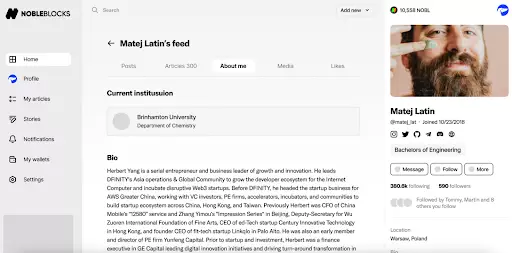The traditional gatekeepers of scientific knowledge have long benefited from the hard work and findings of the scientific community. However, the landscape of scientific publishing is undergoing a significant transformation with the rise of blockchain technology. This transformation is poised to bring about a more equitable distribution of resources and the decentralization of science.
Scientific journals, which play a crucial role in disseminating knowledge, are facing a range of challenges. From issues related to article suitability, high publication fees, and complex review processes, to access hurdles and inefficiencies. Despite efforts to widen access through digital platforms, the existing system continues to present obstacles to both researchers and readers.
The scientific publishing industry operates on a model that often favors prestigious journals, charging exorbitant fees to researchers and their institutions for publication. Article Processing Charges (APCs) for open-access journals vary widely, with some top-tier publications charging upwards of $6,000. While platforms like ArXiv and SciHub offer alternatives, they lack quality control and authentication mechanisms, leaving gaps in the system.
It is evident that the scientific publishing space is in need of modernization, drawing inspiration from fields that have successfully transitioned to user-friendly models. Blockchain technology has emerged as a transformative force, addressing the inefficiencies and inequalities inherent in the current system. By leveraging blockchain, the publication process can be streamlined, peer reviews can be enhanced, and fairness can be fostered.
Through the decentralized science (DeSci) model, blockchain offers a solution to the challenges in scientific publishing. By establishing a public infrastructure for creating, reviewing, storing, and distributing scientific knowledge, blockchain fosters openness, incentivization, and community engagement. Platforms like NobleBlocks are at the forefront of this movement, aiming to democratize access to scientific knowledge and streamline the publication process.
NobleBlocks seeks to revolutionize scientific publishing by creating a transparent and equitable review process. By utilizing blockchain technology, the platform ensures that every scientific discovery is securely recorded and easily accessible. This approach reduces publication costs, removes financial barriers for authors, and incentivizes quality contributions throughout the peer review process.
One of the key features of NobleBlocks is the introduction of a token-based economy. By leveraging the platform’s native token, NOBL, researchers can trade and exchange research hours directly, bypassing traditional financial barriers and expensive publishing fees. This token-based system incentivizes quality peer reviews, fosters a more efficient publishing landscape, and empowers researchers and academics.
As the landscape of scientific publishing continues to evolve, NobleBlocks is committed to integrating cutting-edge technologies like artificial intelligence (AI) to further enhance the efficiency and capabilities of the publishing process. By embracing innovation and reshaping the nature of scientific discovery and dissemination, DeSci aims to create a fairer, more accessible future for innovation in scientific research.
The transformation of scientific publishing through blockchain is paving the way for a more inclusive and equitable system. By redefining the traditional norms of scientific publishing and embracing decentralized models, platforms like NobleBlocks are ushering in a new era of scholarly communication and collaboration. Through innovation, transparency, and community engagement, the future of scientific publishing looks brighter and more accessible than ever before.

